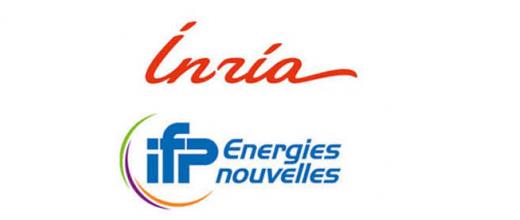Digital technologies are playing an increasingly important role in solving industrial problems. Conscious of the need to combine its expertise with that of digital technology experts in order to develop its new energy innovations, IFPEN forged a partnership with Inria. Five years later, we look back over this fruitful partnership.
In 2015, IFPEN signed a framework agreement with Inria in the field of high-performance computation (HPC) and real-time computation applied to energy optimization and the environment. Research focused more specifically on three of the nine scientific challenges that underpin IFPEN’s fundamental research and help optimize performance in the digital technology field.
Make better use of hybrid vehicle propulsion energy using a new algorithm
First of all, challenge 7 (“Control and optimization of complex systems”) increasingly requires the development of simulation tools capable of overcoming the absence of some components to determine the behavior of a system. Real-time simulation in particular offers the possibility of incorporating absent components to perform the calculations required for decision-making.
Within this context, a PhD thesis focused on the optimized use of energy on board hybrid vehicles in order to exploit the potential of this technology in terms of reducing CO2 emissions. The new algorithm developed, called the energy management system (EMS), made it possible to strike the right balance between the use of the IC engine and the electric motor as a function of traffic conditions, a factor that had not previously been taken into account in the modeling process.
Digital simulation: faster computation thanks to adaptive methods
Within the framework of this partnership, research teams also worked on challenge 8 (“digital and IT performance of computational codes”) aimed at optimizing the use of new, constantly evolving digital architecture computational resources.
For example, they developed calculation time acceleration strategies via the development of new methods to obtain the optimization of the mesh required by digital simulation. Thanks to refinement algorithm management, these methods enable dynamic mesh adaptation.
Fostering dialog between data analysis experts
Lastly, to help address challenge 4 (“massive data flows”) by encouraging dialog between experts, IFPEN and Inria co-organized Datascien’2018, an inter-disciplinary conference bringing together researchers, software developers and industrial players to discuss the theme of data analysis.
>>To find out more, consult the summary of this event.
Expanding and reinforcing the partnership
The success of the research described above having demonstrated the benefits of pooling their expertise, IFPEN and Inria have decided to reinforce their partnership by expanding their research to include Artificial Intelligence (AI) and high-performance data analysis to support the energy transition.
The new partnership will hinge around the launch of a joint research laboratory, called “HPC/AI/HPDA Convergence for the Energy Transition”, for which five fields have already been selected:
- floating wind turbine modeling and monitoring
- the acceleration of simulations based on complex modeling
- assisted discovery via the molecular simulation of new catalysts for converting raw materials (biomass, solar energy) into biofuels and bioproducts
- 4D modeling of the evolution of sedimentary basin deformation over time
- knowledge management and assisted selective research via AI approaches concerning multiform documentary data.






